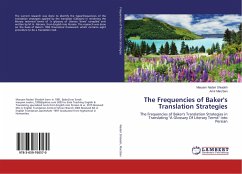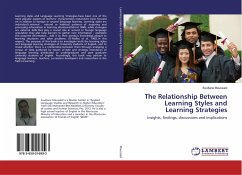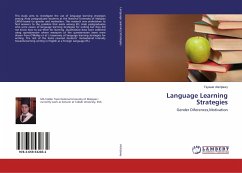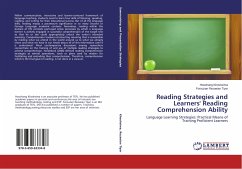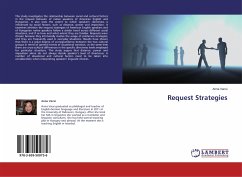
Request Strategies
Versandkostenfrei!
Versandfertig in 6-10 Tagen
16,99 €
inkl. MwSt.

PAYBACK Punkte
8 °P sammeln!
This study investigates the relationship between social and cultural factors in the request behavior of native speakers of American English and Hungarian. It also tests the extent to which speakers directness is influenced by social factors, such as distance, power and imposition. It examines whether the request strategies of American English speakers and of Hungarian native speakers follow a similar trend across different social situations; and if so how and what extent they are familiar. Requests were chosen because they intrinsically involve the usage of politeness strategies; and they are ...
This study investigates the relationship between social and cultural factors in the request behavior of native speakers of American English and Hungarian. It also tests the extent to which speakers directness is influenced by social factors, such as distance, power and imposition. It examines whether the request strategies of American English speakers and of Hungarian native speakers follow a similar trend across different social situations; and if so how and what extent they are familiar. Requests were chosen because they intrinsically involve the usage of politeness strategies; and they are frequently used in everyday situations. Results have shown that there is a great degree of correspondence between the two cultural groups in terms of general trends of situational variation, at the same time there are cross-cultural differences in the specific directness levels employed for particular situations. This study argues that distance, power and imposition alone do not always decide speaker s level of directness. A number of situational and cultural factors need to be taken into consideration when interpreting speakers linguistic choices.




